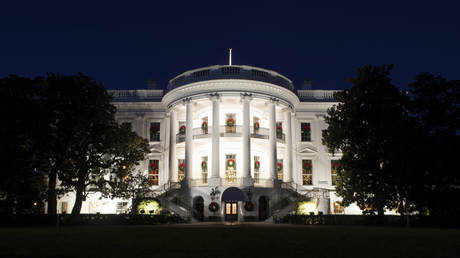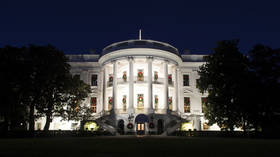US ‘concerned’about China’s activity near Taiwan
The US would continue to support Taiwan amid China’s "provocative" activities near the island, a White House official has told AP

US ‘concerned’about China’s activity near Taiwan

The US is concerned over Beijing’s large-scale military drills in the Taiwan Strait, a White House National Security Council official told AP on Monday. Washington has an interest in keeping "peace and stability" in the region, the official insisted, adding that the US would continue to support Taiwan.
China’s military activity near the self-governed island is "destabilizing, risks miscalculations, and undermines regional peace and stability," the official, speaking on condition of anonymity, told the agency. The Chinese People’s Liberation Army (PLA) launched a massive maritime exercise in the area last week, after calling for a response to "provocation" by Taipei and Washington.
On Monday, Taiwan claimed that a total of 71 Chinese jet fighters, anti-submarine planes, electronic warfare aircraft, and reconnaissance drones, together with seven naval ships, had been spotted near the island over the past 24 hours. The Chinese military, which called the drills "joint fire strike exercises," said the move was "a resolute response to the escalating collusion" in the area.
Last Friday, President Joe Biden signed the National Defense Authorization Act for the Fiscal Year 2023, a spending bill that allows up to $2 billion worth of military loans to Taiwan over the next five years.
The National Security Council official maintained on Monday that the US "has an abiding interest in peace and stability across the Taiwan Strait," adding, though, that it "will continue to assist Taiwan in maintaining a sufficient self-defense capability in line with our long-standing commitments and consistent with our one-China policy."
Relations between China and the United States have deteriorated in recent months, following US House Speaker Nancy Pelosi's visit to the island in August. Beijing views the island, which has been self-ruled since 1949 but never declared independence from China, as an inalienable part of the national territory under the One-China policy.
While formally following the One-China policy and recognizing Beijing’s sovereignty over the island, Washington has actively supported Taipei, including by selling it arms. Both Washington and Beijing have repeatedly accused each other of destabilizing the situation in the Taiwan Strait. Last Friday, Chinese Foreign Minister Wang Yi accused the US of "stabbing China in the back," in a phone call with US Secretary of State Antony Blinken.












